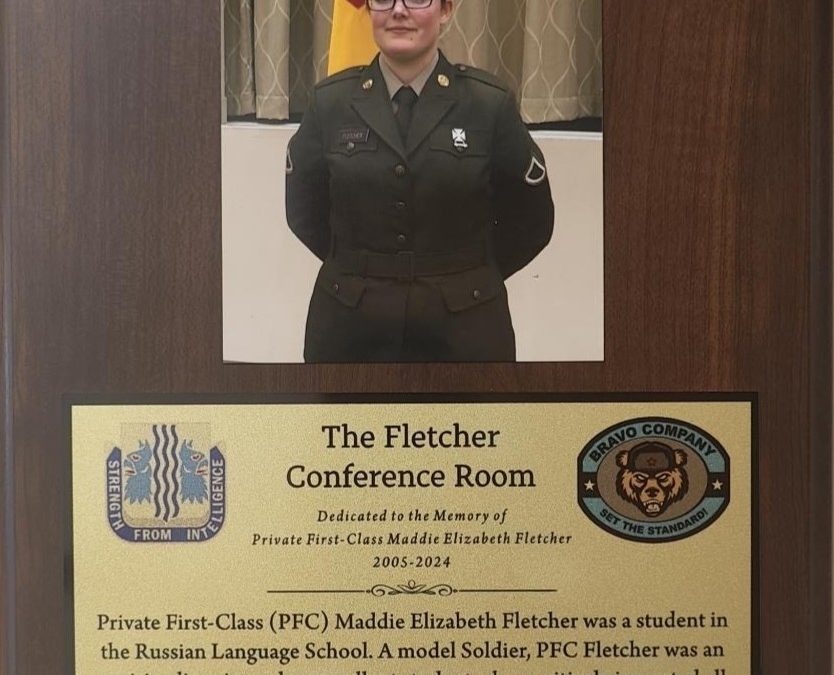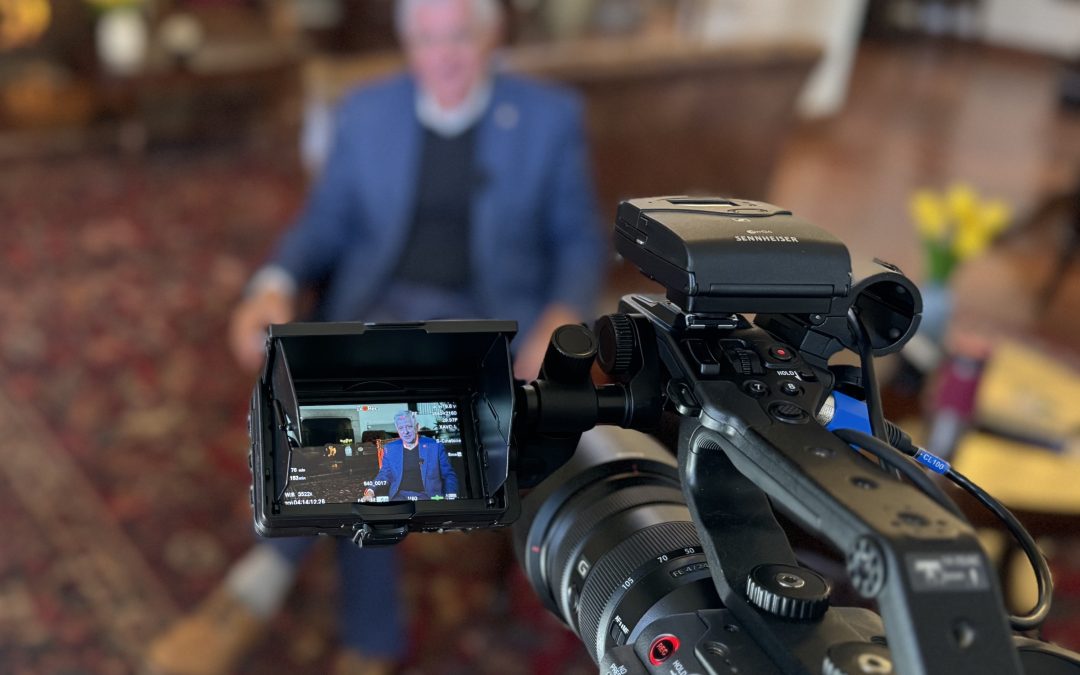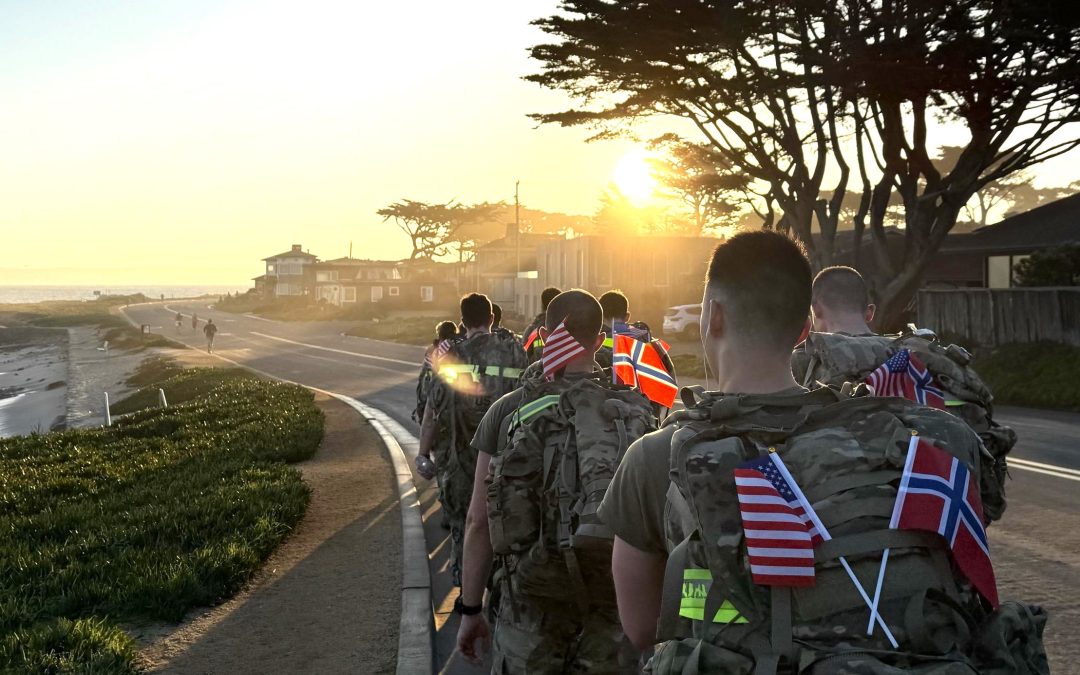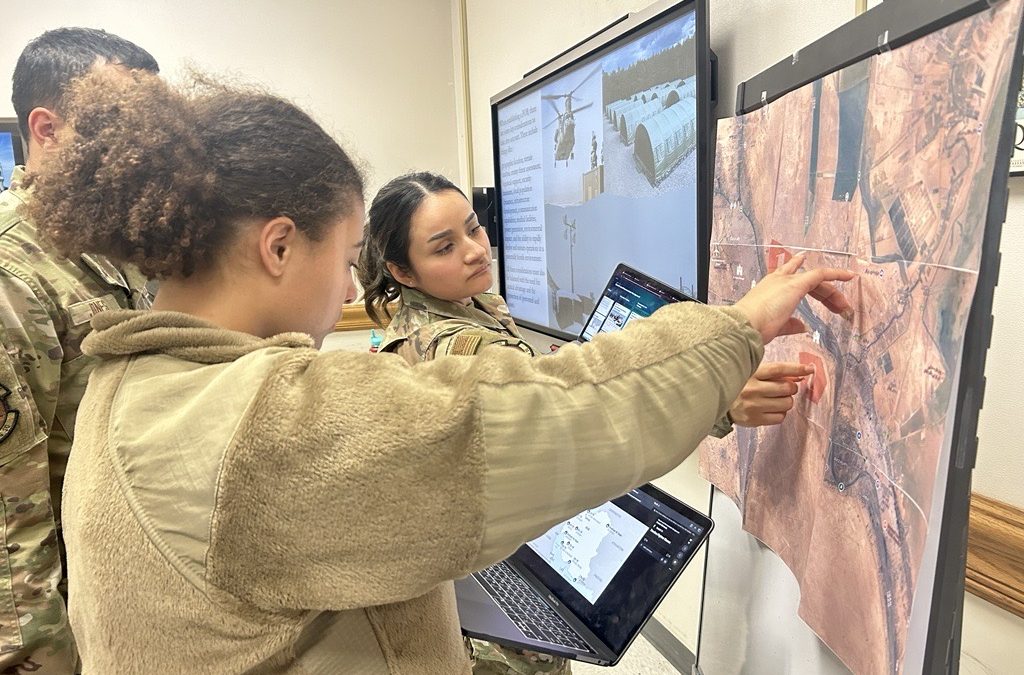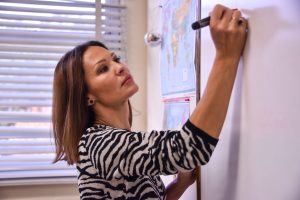
Irina Anokhin works on the whiteboard in the classroom.
In the heart of America’s melting pot, Irina Anokhin stands as a testament to the power of language and the resilience of the human spirit. Her story, a blend of multiculturalism and dedication, stretches from the bustling streets of Moscow to the academic halls of the United States, where she now serves as a bridge between cultures in her role with the Defense Language Institute Foreign Language Center.
Born to a father who held the rank of colonel in the Soviet Army, Anokhin’s formative years were laced with the cadences of different dialects. “I was exposed to foreign languages since I was a very young child,” she recalled. Her father’s military service led them to diverse war-torn regions such as Afghanistan and North Ossetia, where she naturally developed a talent for languages and gained a deep appreciation for the military’s vital contribution to peacekeeping. These experiences profoundly influenced her life and her future.
Even early on in her schooling, the pressures of family expectations nudged Anokhin toward the military despite having a love for animals which steered her heart towards a veterinary path. “I respected my dad and I love him, so I kind of agreed [to join the military],” she said. However, her true calling couldn’t be silenced, and she eventually admitted to her father she’d need to carve out her own way as a veterinarian.
At the age of seventeen, Anokhin left home in search of her own path, one directed by her heart and not familial obligation. A farm in Norway became Anokhin’s sanctuary, where she worked as a farmhand, mucking stalls and caring for the livestock. Not easy work for a teenage girl, but her passion and love for animals kept her working.
The practicality of communication in her daily tasks with a strong Norwegian woman and her five children made her “almost fluent in Norwegian,” Anokhin said. The language became second nature, thanks to full immersion in a foreign environment.
She soon returned to Russia where Anokhin’s academic excellence in veterinary studies led her down an unexpected avenue. “I started reading professional veterinary articles in English… and I decided that I would translate some articles for my colleagues,” she explained. This venture into translation bridged her two passions, launching her into the realms of language education and interpretation.
Anohkin’s journey to the United States, where she’d dedicated herself to language studies, became a safe haven. Here, the U.S. was both a pursuit of knowledge and an escape from a homeland where she often felt alienated due to her mixed heritage.
“I have nine different nationalities in my DNA… and because of me being more Asian looking growing up in Russia… I never felt at home there,” Anokhin shared. Conversely, the diverse backdrop of America’s melting pot offered her an acceptance she’d never known, allowing her a chance to flourish professionally.
Now armed with a master’s in teaching English as a foreign language from Kent State University, Anokhin stepped into the role of an educator in Ohio’s public schools, predominantly assisting Ukrainian children to assimilate to their new home. Her multilingual abilities were not just a skill but a beacon of hope for many immigrant families trying to navigate their new world.
Anohkin’s expertise and unique background eventually caught the attention of DLIFLC when she applied to be a Russian instructor. When asked about the moral complexities of working for the U.S. government, Anokhin responded with the wisdom of someone who’s weighed her decisions against the scales of personal convictions and national loyalties. “I teach the Russian language… not Russia,” she asserts, distinguishing her love for her Russian heritage from her disapproval of its current governance.
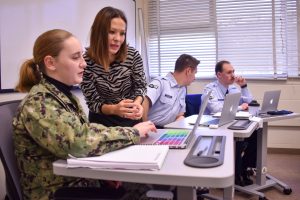
Irina Anokhin works one-on-one with students in the classroom.
Shockingly, her father displayed no bitterness towards her career choice in the U.S., even as a veteran of the Soviet army. “He is… the most influential person in my life,” she said proudly. His support never wavered, even when her life took turns he hadn’t envisioned.
Despite the distance from her family and the bittersweet nature of her expatriate status, Anokhin sees her role as an educator and department chair in the U.S. not merely as a job but as a mission. “Contributing to the safety of this country gives me satisfaction and pride,” she stated.
Anokhin holds onto the hope that her work today might foster better relations between the U.S. and Russia in the future.
“At least my life is not boring,” she smiled.

